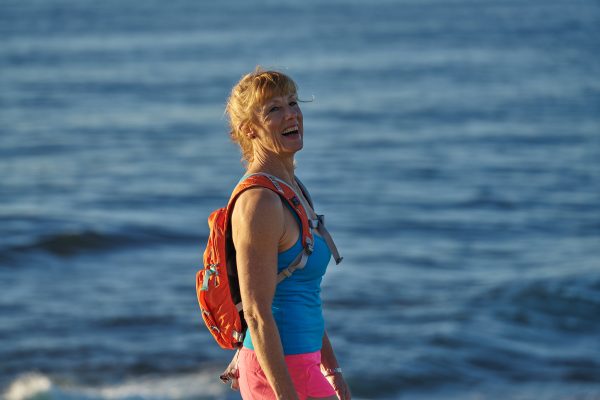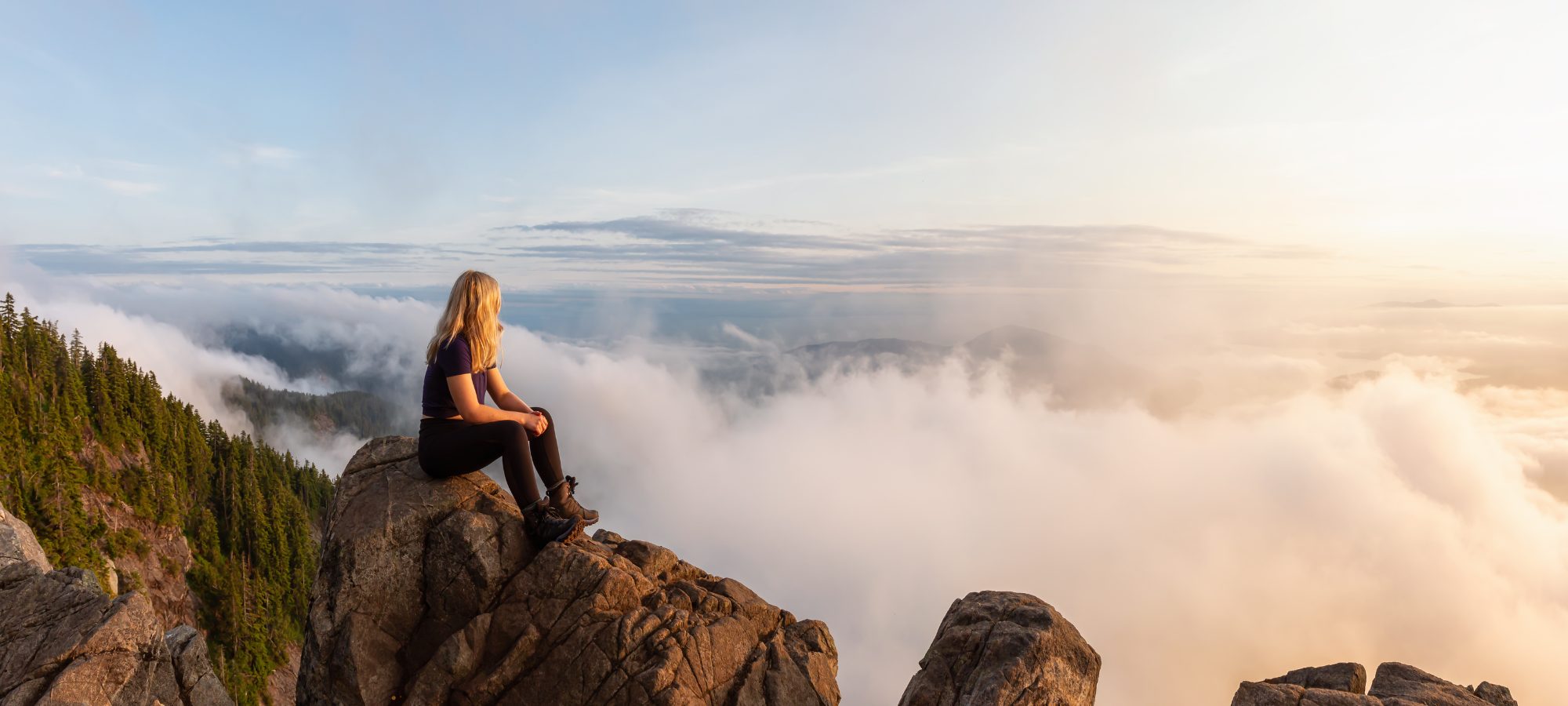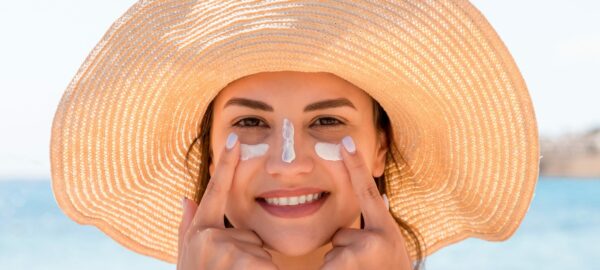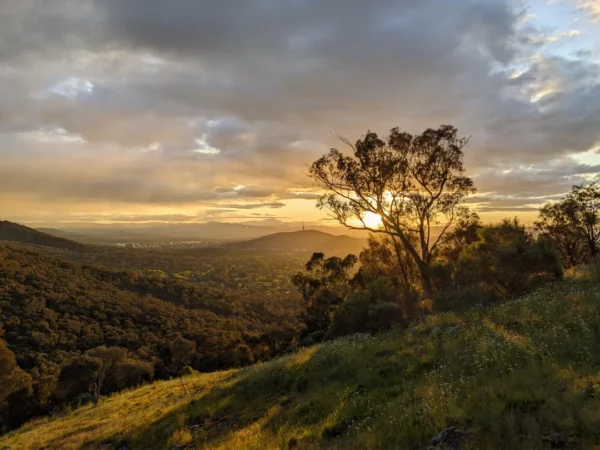I got lucky when I fell in love at the tender age of eight.
My love motivated me to leap out of bed in the dark to ride my bike seven kilometers uphill through rain, hail and icy cold Canberra winters, alone, six days a week.
Waiting for me at the top of the hill was the object of my desire, which was gymnastics.
I was obsessed with it. I loved doing it, dreaming of doing it, eating to do it and coaching kindy kids to do it. My love wasn’t restricted to the gym. When I wasn’t in that heavenly hall, I’d be cartwheeling, somersaulting, climbing, swinging, dancing and spinning in the backyard, the hallway, the loungeroom, the school playground and on my bed.
I was born for gymnastics.
I rarely missed a single day of this ritual for nine years, which filled me with joy. But sadly gymnastics and I broke up after tore my hamstring off the bone while doing a tricky arial walkover on the beam. I was devastated.
This injury meant I was unable to walk, run, leap and cartwheel for over a year. My gymnastics career was over, at the ripe old age of sixteen.
I lost my love … and my sense of purpose. My reason for being vanished in that instant.
Eventually my misery eventually faded but life was never the same again. I’d lost my sparkle. I no longer had a thrilling connection to something bigger than me, something consuming and fun. I didn’t have fulfilment.
Whilst not fully aware of what I had lost, I continued seeking, following my love of physical activity from gymnastics coaching to professional dancing, to Physical Education teaching to personal training to competitive aerobics.
I eventually rediscovered my purpose whilst working as a radio producer in my late thirties. It was at this time that a failed mountain climb grew into the side hustle of inspiring other mid-life women to sneak out after dark to get fit for extreme hiking adventures.
This eventually became the social purpose enterprise called Wild Women On Top, which was born out of my desire to inspire and empower women through challenging wilderness treks. This became my new purpose and Act 3 of my career.
This sense of purpose, which I discovered as a child, is known as Ikigai by the Japanese. It’s an ancient philosophy that underpins this country’s remarkable levels of wellbeing and longevity.
Ken Mogi, neuroscientist and author of The Little Book of Ikigai: The Essential Japanese Way to Finding Your Purpose in Life, says whether “you are a cleaner of the famous Shinkansen bullet train, the mother of a newborn child or a Michelin-starred sushi chef – if you can find pleasure and satisfaction in what you do and you’re good at it, congratulations, you have found your ikigai.”
Ikigai is what gets you up in the morning and keeps you going throughout the day, over weeks, months and years. It sustains you through hardship and old age. It’s that something you do that keeps you interested, focused and fulfilled.
Ikigai appears to be one of those fundamental human quests that transcend cultures, with similar roots dating back to Aristotle’s philosophy of eudaimonia which reflects the “pursuit of virtue, excellence, and the best within us”. The French call it raison d’etre, and the yogis call it Dharma, your ‘life’s purpose’.
These concepts can be used to help you find your passion, and in turn find a lifestyle, job or career that matches your interests in the long term.
In addition to its wellbeing benefits, purpose is also linked to longevity, as highlighted in the Blue Zones, made famous by Dan Beutner’s National Geographic study. It is considered an essential feature of a long and happy life for the people of Okinawa, Sardinia, Linda Loma, Nicoya and Ikari.
Mogi also notes that living with purpose encourages other behaviors that promote longevity. “Having ikigai would induce you to lead a healthier lifestyle, with more exercise, increased social activities, and life-long learning,” says Mogi.
Research further supports these practices showing that “having a purpose lowers the risk of all causes of mortality, regardless of gender, race, or ethnicity, but the effects were more pronounced among women.” It also shows that when you have a sense of purpose you can lower your risk of all-cause mortality by 34%, which has been likened to adding seven years to your life!
Ikigai features in positive psychology, wellness coaching and business leadership for those seeking to get the best out of themselves and their staff by encouraging them to focus on their strengths.
And with a little help from your friends, you can go a long way towards finding your own ikigai by focusing on your unique reason for living, that sweet spot between what you love doing, what you’re good at and what the world needs.
Another benefit of your pursuit of ikigai is that it can motivate you to do the ugly work needed to achieve a big dream. In any worthwhile pursuit, there are challenges and struggles, times where it all feels way too hard. When that work is in alignment with your ikigai, motivation to do this non-glamourous, boring or frustrating work feels a little easier because it’s fueled by purpose.
Your ikigai quest is good for your mental health because it produces happy hormones. But in this journey, happiness is a means to an end rather than the end itself. Your Ikigai is the motivator and when you find it, the motivation to do the work will come naturally. You’ll be excited to do the work.
For author Elizabeth Gilbert, writing is her Ikigai. It’s that thing that motivates her write every day, regardless of whether she’s paid to do it or not. It’s been her hobby, her job and is now her career.
I’m grateful to have found an ikigai that requires me to be my fittest, strongest, healthiest self, and in doing so forces me to prioritise my own health alongside the competing demands of caring for others and earning a living. Many ikigais will do this because they’ll motivate you to put your own oxygen mask on first and prioritise self-care so you can be the best you can be.
Not all of us will find our ikigai, but there’s value just in the quest. It’s one of the pillars of our wellbeing and worth investing time in because it brings joy. So, rather than searching for happiness, search for ikigai and happiness will come. And if you’re lucky, you might just find fulfilment there, too.









